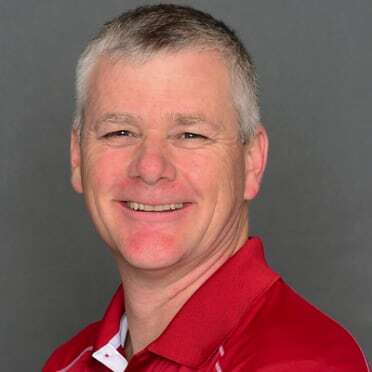The crack of the ball, the roar of the crowd and the smell of roasting peanuts make for a lovely afternoon of baseball.
But behind the scenes, the business is anything but a day at the park.
Tom Harris, Arizona State University alumnus and executive vice president and chief financial officer of the Arizona Diamondbacks, recently spoke to the Economic Club of Phoenix about the business of baseball.
Tom Harris
Harris, in his 27th year with the team, oversees all general accounting, finance, stadium operations and administrative activities, and he ensures operations are in accordance with ownership goals and objectives.
He earned a bachelor’s degree in accountancy in 1985 and a master’s degree in taxation in 1992 at ASU.
The Diamondbacks took the field by storm, starting play in 1998 and winning their first World Series title in 2001. They won three division titles in 1999, 2001 and 2002.
“It was very exciting to bring baseball to Arizona for the first time ever,” Harris said. “It was very much an unprecedented start ... what we would like to term an artistic success.”
The team won four Cy Young Awards (all due to pitcher Randy Johnson) and counts more than 15 million fans in attendance, averaging 3 million fans per year.
But despite the unprecedented start, behind the scenes there was financial stress.
“The stress was caused by a lot of things,” Harris said.
There were stadium cost overruns, which were the team’s responsibility, to the tune of $120 million. The team also cost more than the organization could afford. The first seven years saw $350 million in operating losses. By 2002, more than $200 million in deferred compensation was owed to players. Going into 2003, the organization was broke. The team was worth $300 million and owed $350 million.
“Ken Kendrick and some other investors stepped up in 2002 to do a nice equity raise for the team,” Harris said.
The new owners raised $244 million in new capital. Over the next few years they raised the total to $444 million.
“I’m happy to say the team is financially stable and has been for quite some time,” Harris said. “Since 2005, we strive to operate at a break-even level. ... As of December of 2019, we are a debt-free company. That $350 million of debt was completely erased.”
In the past decade, teams have been selling for $800 million to $2.4 billion. The Diamondbacks are now worth an estimated $1.3 billion.
“Bottom line — and this is the philosophy of our ownership group — we spend what we make,” Harris said. “What I mean by that is we spend according to our level of revenues, and our revenues are somewhat predictable. ... There have been virtually no distributions or dividends paid to our ownership group.”
The Diamondbacks continue to face challenges.
“We are in the most saturated sports market in the United States by far,” Harris said.
All four major sports, the Phoenix Open, spring training, Super Bowl, two NASCAR events, two college bowl games, ASU and Grand Canyon University all have presences in the Valley.
“I’m not aware of any other Major League franchise that has as much competition in its marketplace,” he said.
In summertime, families and the affluent leave. Spring and fall weather are beautiful in Arizona.
“That’s something we compete with,” he said. “We need to be playing well to keep people in there.”
The team has deep-pocketed rivals.
“We get outspent in almost every category,” Harris said. “It is not uncommon for the LA Dodgers to outspend us 2-to-1 in MLB compensation.”
The big-market teams typically make four to five times the revenue the Diamondbacks make.
“What we talk about at the Diamondbacks is we have to find a way to win,” he said. “Finding a way to win doesn’t just include winning on the field. ... We have to find ways to win in the areas we can control.”
Three of those areas are fan experience, employee culture and community involvement and giving.
“We want people to come to the ballpark and have a safe and fun environment,” Harris said.
That starts from the minute fans park. Game presentation, in-game features and concession food all play a part.
“When you come to a ballgame, even if we don’t win, we want you to think, ‘Hey, this was a fun thing I’d like to come back to,’” Harris said.
Affordability is a big factor. The team offers something for every wallet. According to Harris, the Diamondbacks have been named the most affordable franchise in the entire league for the past 12 years. The average ticket price is $20.
“We’re proud of that,” Harris said. “We’re not just a sports team. We’re a business. We try to make our product valuable.”
The Economic Club of Phoenix speaker series hosts leaders from some of the best-known and most influential companies in the world. Past speakers have been from such organizations as Starbucks, NCAA, Deloitte, McKesson, Humana and Whole Foods. The series is sponsored by the W. P. Carey School of Business.
Top image by Wokandpix/Courtesy of Pixabay
More Business and entrepreneurship
Sustainability leader and ASU alum honored for transforming business with a people-first approach
Long before Jim Fish ('86 BS in accountancy) became president and CEO of WM — formally Waste Management — in 2016, he recognized that the higher he climbed the corporate ladder, the greater the…

ASU business students take on the big leagues
Each year, sports fans from across the country flock to Arizona to attend major events like the Waste Management Phoenix Open, Fiesta Bowl and Cactus League Spring Training. These mega-events…

With help from ASU and a viral TikTok, an entrepreneur soars
Nearly five years ago, Ruben Trujillo saw his entrepreneurial dream slipping away as he wondered how he would pay his rent.Now, Trujillo’s business, Café Emporos, is featured on a national TV…



